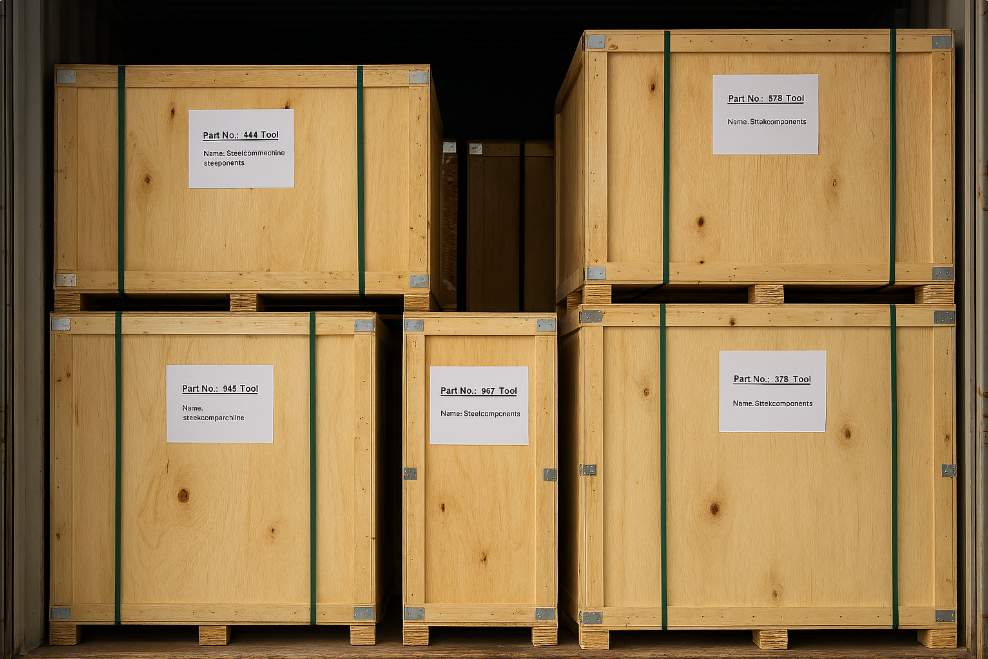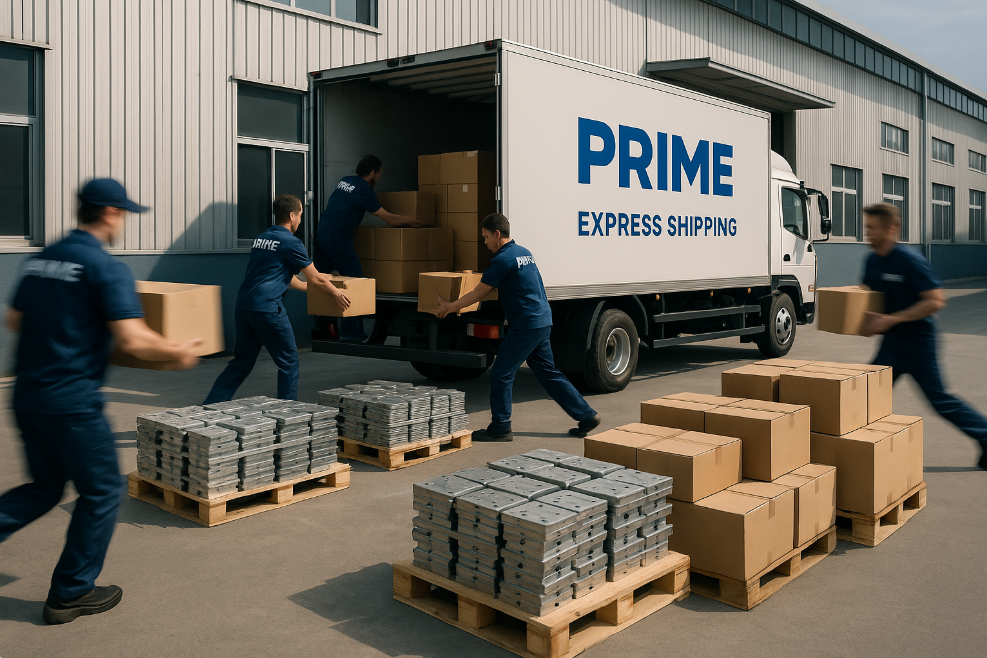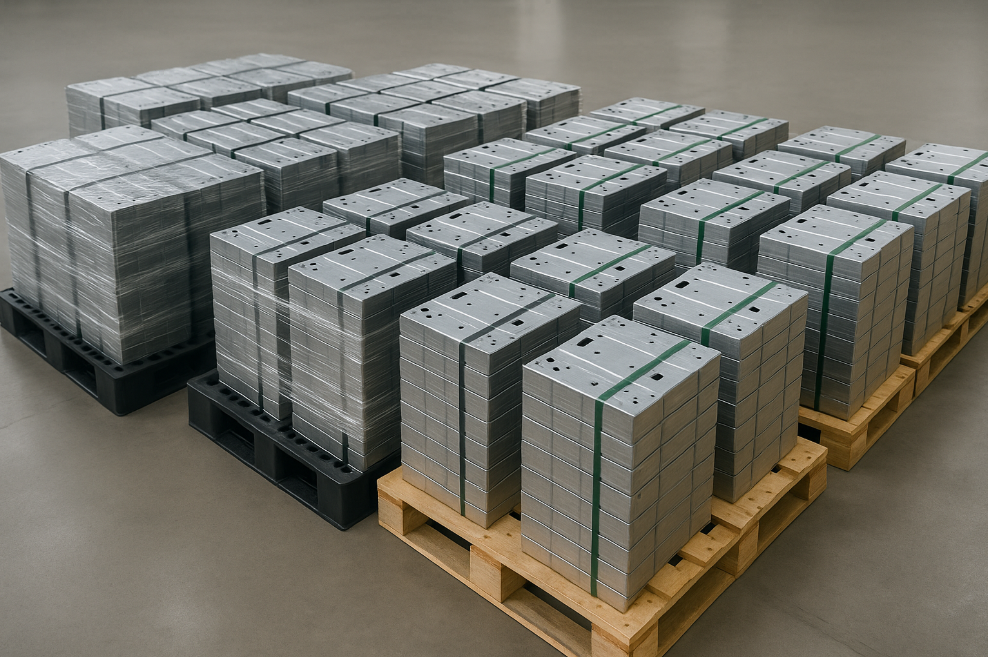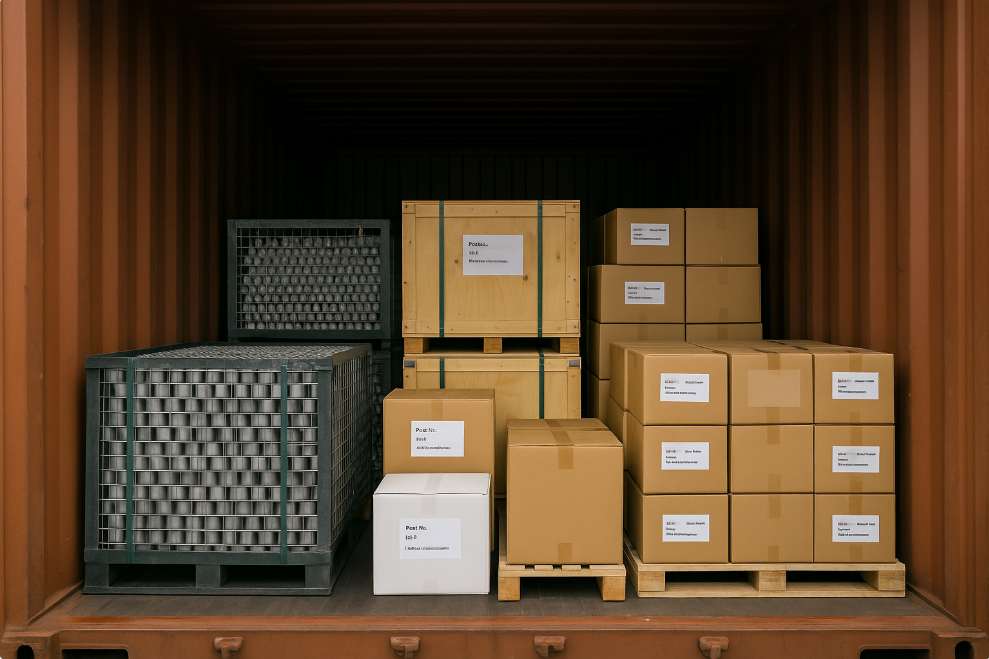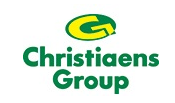Custom Metal Forging Solutions for Demanding Applications
PRIME—ISO-Certified Forging Factory Since 1993

Common Products Of Metal Forging
PRIME provides a wide range of forged metal components designed for strength, durability, and complex industrial requirements.

Open Die Forged Parts
Ideal for large-scale components, this process offers excellent mechanical properties and is commonly used for shafts, rings, and blocks.

Closed Die Forged Parts
Produced with precision dies for tighter tolerances and complex geometries, suitable for automotive, aerospace, and industrial sectors.

Cold Forged Components
Low-temperature forging improves surface finish and dimensional accuracy, ideal for fasteners, gears, and precision mechanical parts.

Forged Automotive Parts
Custom-forged components like connecting rods, steering knuckles, and hubs to ensure safety, durability, and high fatigue resistance.

Stainless Steel Forgings
Used in applications requiring excellent corrosion resistance and strength, such as valves, flanges, and food processing equipment.

Custom Forged Parts
Tailored to your designs and specifications, supporting complex shapes, multi-step processing, and various metal alloys.
Why Choose PRIME: Strategic Advantages in Custom Metal Forgings
Selecting the right forging partner is crucial to ensuring component strength, dimensional accuracy, and supply chain stability. PRIME stands out with decades of experience, ISO-certified quality systems, and advanced forging capabilities. Whether you're sourcing open die, closed die, or cold forged parts, our integrated services and global delivery make PRIME your trusted choice.
- 30+ Years of Forging Excellence: Since 1993, we’ve delivered high-performance forged components across demanding industries like automotive, heavy machinery, and energy.
- ISO 9001:2015 Certified Quality: Our forging and inspection process follows international standards, ensuring structural integrity and dimensional precision.
- Diverse Forging Capabilities: We offer open die, closed die, and cold forging services for steel, stainless steel, and alloy materials—tailored to your design needs.


- Global Supply, Local Understanding: We export forged components to North America, Europe, the Middle East, and Australia—ensuring smooth logistics and full documentation compliance.
- One-Stop Metal Solutions: From forging and machining to heat treatment and inspection, we deliver turnkey forged parts under one roof—reducing your lead times and vendor coordination.
Ready to Strengthen Your Projects with PRIME Forgings?
Send us your drawings or part samples, and our engineering experts will evaluate your forging feasibility and provide a detailed quote within 24 hours.
Partner with PRIME to unlock superior performance, reliability, and long-term value.
Address Your Concerns: FAQ about Forged Metal Parts
To help you make informed purchasing decisions, we’ve compiled the most frequently asked questions regarding custom forged metal parts and our services. This section aims to resolve common concerns about materials, tolerances, packaging, and international delivery.
What materials can be used for metal forging at PRIME?
We offer forging services in carbon steel (C45, 1045), alloy steel (42CrMo, 4140), stainless steel (304, 316, 410), aluminum, brass, and other metals. Material certification and full traceability are available upon request.
What tolerances can PRIME achieve for forged parts?
Our forging tolerance typically ranges from ±0.3 mm to ±1.0 mm depending on part complexity and material. For tighter tolerances, we provide post-forging machining and CNC finishing down to ±0.01 mm.
What are the advantages of closed die vs open die forging?
Closed die forging enables higher precision and complex shapes with better surface finish. Open die forging is ideal for larger, simpler parts with superior grain flow and strength. We help you select the right process based on part size, material, and application.
Can PRIME provide post-forging machining and heat treatment?
Yes, we provide CNC machining, drilling, threading, and turning after forging, along with heat treatment services like quenching, normalizing, tempering, and annealing to meet final mechanical requirements.
What packaging and export services does PRIME offer?
All forged parts are protected with rust-proof oil, packed in plastic bags, foam-lined cartons, and reinforced wooden crates or pallets. We provide CO, Form A/E, packing list, invoice, and can handle sea, air, or courier shipping to global destinations.
Our Factory Insight






- Ⅰ:What is a custom forged metal part?
- Ⅱ: Explore Custom Forging Processes and PRIME’s Expertise
- Ⅲ:Material Selection Guide: Building Strength for Forged Components
- Ⅳ:Surface Treatments for Forgings: Strength Meets Finish
- Ⅴ:Forging Dies and Tooling: Engineered for Endurance
- Ⅵ:Our Quality Commitment in Forging
- Ⅵ:Our Quality Commitment in Forging
- Ⅷ:Diverse Applications: The Power of PRIME Forged Components
- Ⅸ: How to Choose the Right Custom Forged Parts Supplier
- Ⅹ:Design for Forging Manufacturability (DFM)
- Ⅺ:Custom Forging vs. CNC Machining: Choosing the Right Metal Manufacturing Process
- Ⅻ:Global Supply Chain & Logistics: Seamless Worldwide Delivery
- XIII:Prime R&D and Innovation: Advancing Forged Metal Solutions
- XIV:Value-Added Services: Complete Support for Custom Forged Components
- XV:More Information On Custom Metal Forgings
Ⅰ:What is a custom forged metal part?
Custom forged metal parts are high-strength components created by deforming metal under high pressure, usually at elevated temperatures, to achieve a specific shape and improved mechanical properties. This process aligns the internal grain structure, resulting in superior toughness, fatigue resistance, and load-bearing performance compared to cast or machined parts.

Metal forging is the preferred method for manufacturing parts that demand exceptional mechanical strength, structural reliability, and resistance to wear and impact. It is widely used in the automotive, aerospace, oil & gas, heavy machinery, and defense industries, especially for mission-critical components exposed to high stress and dynamic loads.
Key Characteristics of Forged Metal Parts
• Exceptional Strength
Forging improves the grain structure, eliminating porosity and internal voids. This results in parts with up to 30% higher tensile strength and impact resistance compared to machined or cast alternatives.
• Material Optimization
Forging is suitable for carbon steels, alloy steels, stainless steels, aluminum, titanium, copper alloys, and more. We support material sizes from 0.5kg to over 100kg per part, depending on design complexity.
• Design Flexibility
From simple shapes to complex contours with ribs, bosses, holes, and gear profiles — closed-die forging enables precise net or near-net shape results with excellent repeatability.
• High Volume Capability
Modern forging presses operate with automated feeding, trimming, and transfer systems to support continuous production, ideal for mid to high volume OEM requirements.
Common Types of Forging Processes
- Open-Die Forging: Simple shaping using flat dies for large parts or low-volume production with good mechanical performance.
- Closed-Die (Impression-Die) Forging: Produces highly accurate and complex geometries with tight tolerances using matched dies.
- Hot Forging: Performed at temperatures above recrystallization to improve ductility and reduce forming resistance.
- Cold Forging: Ideal for small, high-volume parts with excellent surface finish and strength without heating the material.
- Upset Forging: Increases cross-sectional area by compressing the material axially, often used for fasteners and shafts.
- Precision Forging: Near-net shape forming that minimizes machining and ensures repeatable tight tolerances.
Industries That Rely on Forged Metal Components
• Automotive
Crankshafts, connecting rods, gears, spindles, and suspension arms built for durability and load resistance.
• Aerospace
Structural airframe components, landing gear parts, and jet engine elements requiring lightweight strength and safety.
• Oil & Gas
High-pressure valves, flanges, drill bits, and pipe fittings used in extreme environments and corrosive conditions.
• Construction & Mining
Heavy-duty forged parts for excavators, bulldozers, and cranes where impact and fatigue resistance are critical.
• Rail & Marine
Axles, wheels, couplings, and propeller shafts requiring long life cycles and structural consistency under dynamic loads.
Ⅱ: Explore Custom Forging Processes and PRIME’s Expertise
Whether you're new to custom forged components or looking to optimize your sourcing strategy, this section offers a clear overview of industrial forging and how PRIME delivers high-performance metal parts tailored to your project needs. We’ll walk you through core forging techniques, key benefits, and how our advanced capabilities address critical challenges such as strength, precision, and production efficiency — empowering you to make confident, informed decisions.


What is metal forging? A foundation of strength
Forging is a metal forming process that uses compressive forces, often with hydraulic or mechanical presses, to shape metal while improving its internal grain structure. This process eliminates internal voids and porosity, creating parts with enhanced mechanical properties. Forging is widely used for structural parts, powertrain components, and high-load industrial parts where safety and durability are paramount. PRIME’s forging solutions offer optimal material flow, strength-to-weight ratios, and long service life for critical industries like automotive, aerospace, and energy.
Forging Solutions Tailored to Your Application
Choosing the right forging method is crucial for cost, performance, and manufacturability. At PRIME, our engineers analyze every aspect of your part — from material and geometry to performance requirements — to recommend the most effective forging strategy. Below is an overview of our most commonly used techniques:
1. Open Die Forging: Large parts with structural integrity
Open die forging uses flat or simple dies to compress metal between platens, allowing free deformation in multiple directions. It is ideal for large parts such as shafts, flanges, blocks, and cylinders. This method produces excellent grain flow alignment and high impact strength. PRIME’s CNC-controlled open-die hammers and presses ensure uniform deformation, reduced internal stress, and repeatable quality in each forging cycle.


2. Closed Die Forging: Precision and complexity in one strike
Also known as impression die forging, this process uses matched dies to form complex 3D shapes in a single or multi-step press cycle. Suitable for medium to high-volume production, it achieves near-net shapes with minimal material waste and excellent surface finish. PRIME’s in-house toolmaking, automated trimming, and flash control systems enable high-precision forging with tolerances as tight as ±0.02 mm.
3. Cold Forging: High-speed forming without heat
Cold forging is performed at room temperature and is ideal for small, high-volume parts like fasteners, pins, and bushings. It offers excellent dimensional control, superior surface finish, and enhanced hardness through strain hardening. PRIME’s multi-station cold heading machines operate at speeds up to 200 parts per minute, delivering consistent output and low per-part costs.


4. Precision Forging: Near-net perfection
Precision forging minimizes post-machining by creating parts close to final shape and tolerance. Ideal for gear blanks, turbine blades, and aerospace components, it ensures superb dimensional accuracy, material efficiency, and performance. PRIME’s advanced simulation, preform design, and flashless tooling technologies allow us to create complex shapes with high repeatability and minimal material loss.
Advice for Smart Buyers
To maximize value and manufacturability, please share your part drawings, expected annual volume, and tolerance requirements during the early consultation phase. This enables our engineers to tailor the most cost-effective and reliable forging solution for your needs — balancing strength, accuracy, and budget.
Ⅲ:Material Selection Guide: Building Strength for Forged Components
Choosing the right forging material is crucial to the strength, durability, and economic feasibility of custom forged metal parts. At PRIME, we leverage our metallurgical expertise to help you make informed decisions that align with your performance requirements and manufacturing goals. From high-strength alloys to corrosion-resistant steels, we evaluate materials to balance mechanical properties, forgeability, and application-specific standards.
Popular Forging Materials and Their Characteristics
| Material | Toughness | Forgeability | Strength (MPa) | Typical Applications |
|---|---|---|---|---|
| Carbon Steel A105 | High | Excellent | 485–620 | Flanges, valves, pressure parts |
| Alloy Steel 4140 | Very High | Good | 655–1080 | Gears, shafts, tooling components |
| Stainless Steel 316L | Moderate | Fair | 485–620 | Food-grade parts, marine components |
| Aluminum 6061-T6 | Moderate | Excellent | 270–310 | Lightweight structural parts, aerospace |
| Brass C37700 | Fair | Good | 300–400 | Plumbing, decorative forged parts |
How PRIME Supports Your Forging Material Decisions
We go far beyond basic recommendations — our team helps you select the ideal material based on mechanical performance, forging suitability, and industry-specific standards to reduce cost and risk across your project lifecycle.

Material Certification & Full Traceability
We provide complete MTRs (Material Test Reports) including chemical composition and mechanical performance per heat batch. This ensures traceability and regulatory compliance for industries like oil & gas, automotive, and aerospace.

Forge-Optimized Design Support
Our engineering team helps you optimize part geometry and material choice for better metal flow, reduced post-machining, and minimal internal stress. This improves yield and part performance while reducing waste.

Cost-Efficiency & Lifecycle Analysis
We help you assess more than just the price per kg. PRIME’s team evaluates total cost impact including forging cycle time, energy usage, finishing steps, and lifecycle wear — empowering better sourcing decisions with long-term ROI in mind.
Ⅳ:Surface Treatments for Forgings: Strength Meets Finish
Surface treatment is crucial in maximizing the performance and service life of forged components. At PRIME, we offer industrial-grade finishing options tailored to the mechanical and environmental needs of forged parts across industries. Our processes improve corrosion resistance, wear performance, and final appearance — while complying with stringent technical standards.
- Hot-Dip Galvanizing: Provides 80–100μm zinc coating thickness per ISO 1461, perfect for outdoor or structural forged parts.
- Black Oxide & Phosphate: Improve corrosion resistance and surface hardness, commonly used in automotive and tools.
- Powder Coating: Offers UV-stable, durable finishes for forged brackets, frames, and enclosures.
- Shot Blasting & Sand Blasting: Removes surface scale and enhances adhesion prior to coating or painting.
- Pickling & Passivation: Acid-based treatments improve rust protection for stainless forged parts in hygienic applications.
- Deburring & Polishing: Precision surface finishing using rotary and vibratory equipment for burr-free, visually refined forgings.

Ⅴ:Forging Dies and Tooling: Engineered for Endurance

High-performance forging starts with precision tooling. At PRIME, we design and manufacture closed-die and open-die tooling using advanced simulation and machining techniques. Our in-house capabilities ensure consistency, repeatability, and durability throughout production.
- FEA-Based Die Design: Finite element analysis (FEA) simulations predict material flow, flash formation, and die stress before machining begins.
- Rapid Tooling for Trials: Soft tooling with tool steel inserts for pre-production testing of complex forged shapes.
- EDM + CNC Machining: ±0.01 mm tolerance for die cavities using H13, SKD61, or tungsten-alloy steels.
- Die Surface Treatments: PVD coatings and gas nitriding to extend tooling life and reduce sticking or galling under heat and pressure.
- Validation Runs: Tooling trials with full forging tonnage and output inspection using CMM and microstructure analysis.
Ⅵ:Our Quality Commitment in Forging
At PRIME, quality assurance is not an afterthought—it’s embedded in every forging stage. From billet inspection to final packaging, we deploy full-spectrum testing and data-driven monitoring to ensure forged components meet international mechanical and dimensional standards.
- Raw Material Inspection: MTR verification for each steel batch, ultrasonic testing for billet integrity, and traceability tagging.
- Process Monitoring: Forging temperature, press tonnage, and cycle time recorded via digital sensors with real-time alerts.
- Dimensional Control: CMM + 3D scanning systems used post-forging and post-machining to verify critical tolerances.
- Mechanical Testing: Tensile, hardness, and impact tests conducted in compliance with ASTM/EN/ISO standards.
- Documentation & COC: Full traceability documents, test reports, and Certificates of Conformance included with each shipment.
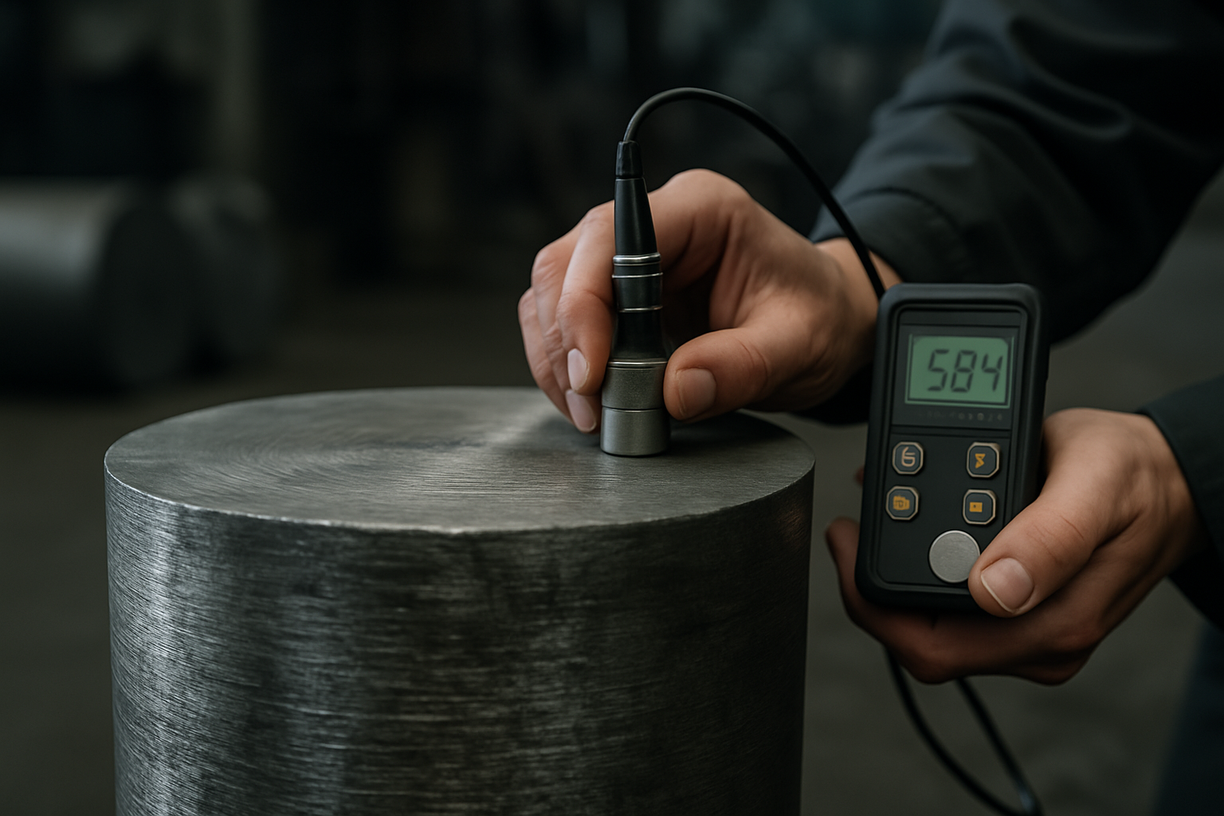
Ⅶ:Common Forging Defects & PRIME’s Prevention Strategy
Custom metal forging involves extreme temperature, pressure, and material flow — any deviation can cause defects that compromise structural integrity. At PRIME, we proactively address these challenges through precision die design, strict process control, and comprehensive inspection systems.
1. Laps & Cold Shuts
Description: Surface cracks or overlaps caused by improper material flow or low forging temperature.
PRIME Solution: Optimized preform design, precise die temperature control, and real-time thermal monitoring ensure complete and defect-free flow.
2. Incomplete Die Fill
Description: Undersized or missing areas due to inadequate material or insufficient pressure.
PRIME Solution: Upset forging simulation, preform calibration, and multi-stage dies guarantee full cavity fill and repeatability.
3. Scale Pitting & Surface Oxidation
Description: Surface irregularities from oxidation or excessive scale formation during heating.
PRIME Solution: Controlled atmosphere furnaces, anti-scale coatings, and post-forging pickling minimize surface damage.
4. Internal Cracks
Description: Sub-surface flaws caused by incorrect temperature gradients or high strain rates.
PRIME Solution: FEM stress analysis, multi-step forging, and ultrasonic testing ensure defect-free internal structures.
5. Dimensional Deviations
Description: Size and geometry variances caused by die wear, springback, or thermal expansion.
PRIME Solution: CNC-machined dies with wear-resistant coatings, precise process compensation, and CMM dimensional validation maintain strict tolerances.
Ⅷ:Diverse Applications: The Power of PRIME Forged Components
Forged metal parts are indispensable in industries demanding extreme strength, durability, and reliability. Their superior mechanical properties and fatigue resistance make them ideal for structural, load-bearing, and high-stress environments. At PRIME, we engineer custom forging solutions tailored to each sector’s technical requirements and performance expectations.
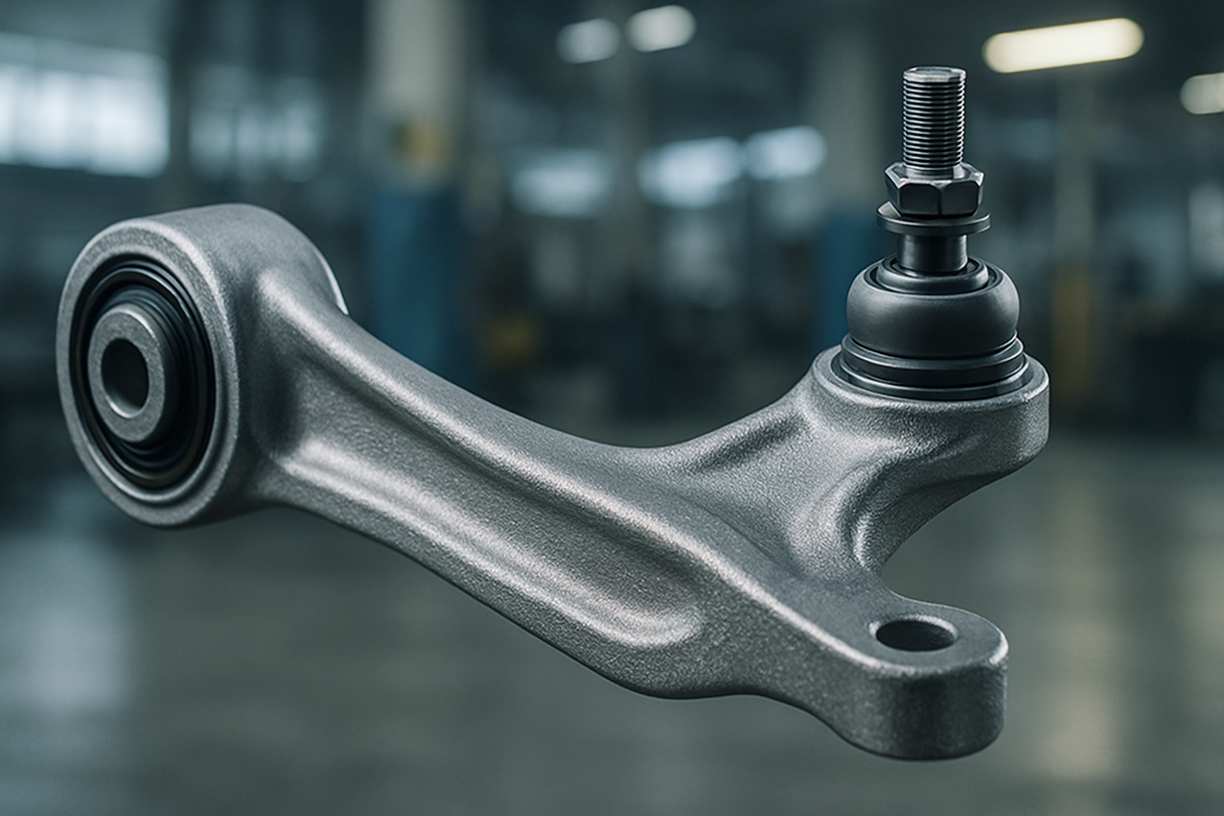
1. Automotive Industry
Impact: High-strength parts for safety and performance under dynamic loads.
PRIME’s Role: We forge control arms, crankshafts, and wheel hubs using alloy steel for superior fatigue resistance and dimensional accuracy.

2. Energy & Power Generation
Impact: Demands parts with high-temperature and pressure resistance.
PRIME’s Role: We supply forged turbine blades, valve bodies, and flanges for thermal, hydro, and nuclear applications with certified traceability.

3. Construction & Heavy Equipment
Impact: Supports wear resistance and shock absorption under extreme conditions.
PRIME’s Role: We manufacture forged gear blanks, track links, and shafts with heat-treated alloy steel for rugged use in excavators and loaders.

4. Aerospace & Defense
Impact: Requires tight tolerances, weight optimization, and certification.
PRIME’s Role: We forge titanium and Inconel components for aircraft structures and defense applications with full traceability and ultrasonic inspection.

5. Oil & Gas Sector
Impact: Demands corrosion and pressure resistance in aggressive environments.
PRIME’s Role: We forge stainless and duplex steel valve parts, pipe fittings, and flanges with NACE-compliant mechanical properties.

6. Railway & Transportation
Impact: Ensures safety and high-load endurance in long-term operation.
PRIME’s Role: We provide forged axles, wheels, and couplers using standard-grade carbon and alloy steel with ultrasonic crack detection.
From automotive to aerospace, PRIME's forged solutions are engineered for strength, reliability, and long service life.
Have a unique project? Our forging engineers are ready to evaluate your drawings and develop a solution tailored to your needs.
Discuss Your ApplicationⅨ: How to Choose the Right Custom Forged Parts Supplier
Selecting a reliable custom forging partner is critical to achieving mechanical performance, dimensional accuracy, and long-term cost efficiency. Beyond raw material and price, evaluate their process control, metallurgical expertise, and ability to scale from prototype to production. Here’s what to consider when sourcing high-quality forged components.
1. Certifications & Compliance
- Do they operate under ISO 9001, ISO 14001, or API Q1 certified systems?
- Can they provide material certificates (MTC), mechanical property reports, and traceability?
- Do they comply with RoHS, REACH, or international pressure equipment standards if needed?
📄 Tip: Request sample documentation for recent projects or internal audits.
2. Material & Forging Expertise
- Do they specialize in carbon steel, alloy steel, stainless steel, aluminum, or titanium?
- Can they perform open-die, closed-die, hot, cold, or precision forging processes?
- Do they offer technical guidance on grain flow, heat treatment, or machining allowances?
🔧 Tip: Ask for a list of materials and forged geometries they frequently handle.
3. Dimensional Accuracy & Quality Control
- Do they use CMM, ultrasonic testing (UT), MPI, and surface roughness testers?
- Do they conduct initial sample inspection reports (ISIR), heat treatment validation, and final inspections?
- Can they link QC data to each batch, die number, or forging heat?
🔍 Tip: Review typical tolerance ranges and post-forging inspection photos.

4. Production Capacity & Scalability
- Can they support pilot samples, low-volume custom jobs, and high-volume batch forging?
- Do they offer multi-station forging lines, induction heating, and automated handling?
- How quickly can they scale output for urgent or seasonal demands?
🏭 Tip: Ask for a list of installed machines and sample production line videos.
5. Engineering Collaboration & DFM
- Do they offer DFM (Design for Forging) suggestions?
- Can they assist with preform design, draft angles, fillet radius, and flash control?
- Do they support CAD formats like STEP, IGES, or SolidWorks?
📐 Tip: Ask if they run FEM simulation or forging die analysis before tool making.
6. Packaging, Export & Delivery
- Do they offer anti-rust packaging, fumigated wooden crates, barcode labels, and export marking?
- Are they experienced in ocean/air freight, pallet loading, and customs documentation?
- Can they coordinate with your freight forwarder or support door-to-port shipments?
🚚 Tip: Review packing methods and clarify INCOTERM options early.
At PRIME, we provide end-to-end forged parts manufacturing—from die design and billet preparation to forging, heat treatment, CNC finishing, inspection, and export. With over 10 forging lines and ISO-certified systems, we are trusted by clients worldwide for strength-critical components.
Ⅹ:Design for Forging Manufacturability (DFM)
Optimize your forged metal components for strength, efficiency, and cost with our expert DFM guidance.
What is Forging DFM? Design for Manufacturability (DFM) in forging ensures that your parts are engineered for efficient deformation, minimal defects, and consistent mechanical properties — right from the start of the design process.
At PRIME, our DFM service integrates forging-specific design reviews, helping you reduce machining needs, material waste, and die failure while improving overall strength and repeatability.
Buyer's pain: “My part has complex geometry. I'm concerned about material flow, tooling cost, and internal defects. How can I be sure it’s suitable for forging?”
1. Early Engagement & CAD-Based Review
We review your 3D models and 2D drawings to assess part geometry, volume, and feasibility for forging. We provide clear recommendations on how to reshape or segment designs for better grain flow and tooling simplicity.
2. Material Utilization & Cost Optimization
- Weight Optimization: Hollowing and core design to reduce billet size without sacrificing strength.
- Alloy Recommendations: Steel, stainless, aluminum, or titanium — chosen for cost-performance balance.
- Scrap Minimization: Efficient preform shapes to limit flash and machining allowances.
3. Forging Process Simplification
- Feature Consolidation: Merge machined features where feasible to reduce operations.
- Die Life Enhancement: Adjust radii and parting lines to lower die wear and cracking.
- Streamlined Steps: Optimize for single-hit or multi-stage forging without excessive rework.
4. Dimensional Control & Defect Prevention
- Critical Surface Emphasis: Maintain tight tolerances where interfaces matter.
- Flash & Flow Balance: Predict and control material fill for complete die coverage.
- Internal Defect Avoidance: Eliminate risks of laps, folds, or underfills before they occur.
Our DFM approach is forged from decades of real-world production. By collaborating early with PRIME, you get more than a quote — you gain expert support in refining your designs for long-lasting performance and repeatable manufacturability.
Lower risk. Stronger parts. Better ROI.
Ⅺ:Custom Forging vs. CNC Machining: Choosing the Right Metal Manufacturing Process
When sourcing high-strength metal parts, B2B buyers often ask: should we go with forging or CNC machining? Both are proven methods with distinct advantages in mechanical strength, cost, and design flexibility. At PRIME, we offer both precision forging and CNC machining — enabling us to recommend the most suitable process based on your part’s geometry, material, and performance needs.
Custom Forging: Ideal for Strength, Durability & Bulk Efficiency
Metal forging uses compressive force and dies to shape heated metal into high-strength components. It's the go-to method for parts requiring toughness and fatigue resistance.
- Mechanical strength: Grain flow aligns with part geometry for maximum durability.
- Material efficiency: Near-net shapes reduce excess machining and waste.
- Volume production: Excellent for repeatable mid- to high-volume runs with long die life.
- Size & weight: Supports production of medium to very large structural parts.
- Impact resistance: Forged parts outperform machined ones in critical stress environments.

Best Applications:
Automotive axles and arms, heavy equipment shafts, aerospace fasteners, high-pressure valve bodies, railway wheels.
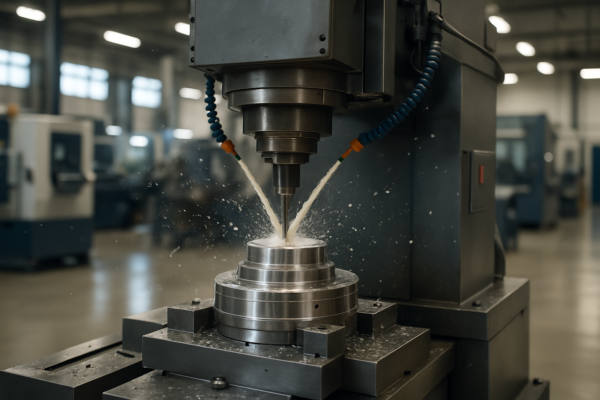
CNC Machining: Perfect for Precision, Low Volume, Complex Geometry
CNC machining removes material from solid blanks to create precise and complex parts. It’s flexible, accurate, and suitable for virtually any shape.
- Tight tolerances: Excellent for critical dimensions down to ±0.005mm.
- Geometric freedom: Capable of internal channels, threads, and pockets.
- No tooling required: Fast prototyping and low MOQ flexibility.
- Material compatibility: Suitable for hard alloys, exotics, and plastics.
- Surface finishes: Achieves mirror, matte, or textured finishes with minimal post-processing.
Best Applications:
Medical implants, aerospace components, custom jigs and fixtures, prototype development, precision enclosures.
Comparison Table: Forging vs. CNC Machining
| Feature | Forging | CNC Machining |
|---|---|---|
| Production Volume | Mid to high | Low to medium |
| Part Strength | Very high (grain aligned) | Moderate |
| Geometry Complexity | Simpler external shapes | Highly complex 3D shapes |
| Tooling Cost | Medium (dies) | Low (no dies) |
| Unit Cost | Low for large runs | Higher per piece |
| Lead Time | Longer (die making) | Faster (programming) |
| Surface Finish | Needs machining/post-processing | Excellent finish as-machined |
| Material Waste | Low (near-net shape) | Higher (subtractive) |
PRIME’s Dual Capability Advantage
PRIME supports both high-strength forging and precision CNC machining under one roof. We assess your design, quantity, and function to recommend the most efficient, cost-effective, and scalable solution for your metal components.
Send us your drawings today. Our engineering team will provide a DFM-backed quote and guide you to the best-fit manufacturing process.
Ⅻ:Global Supply Chain & Logistics: Seamless Worldwide Delivery
For international B2B buyers, logistics reliability is as critical as the forged parts themselves. With decades of global trade experience and a resilient logistics network, Prime ensures your custom forged metal components arrive on time, safely packaged, and cost-effectively — anywhere in the world.
Buyer Concern
“I'm ordering precision forged parts overseas. How can I ensure smooth customs clearance, stable delivery schedules, and no hidden fees?”
Prime’s End-to-End Logistics Solution
From factory floor to your facility, Prime supports the entire logistics process — reducing risk, boosting transparency, and delivering forged components with confidence. Here’s how we make global delivery seamless and secure.
1. Trade Compliance & Export Expertise
- HS Code Accuracy: Correct classification ensures smooth customs and optimal duty handling.
- Full Export Docs: Includes mill test certificates, packing lists, and country-specific declarations.
- Regulatory Compliance: We monitor global trade policies to keep your shipments compliant and uninterrupted.

2. Flexible Transport Strategies
We adapt shipping methods to the weight and urgency of your forged parts:
- Air Freight: Ideal for urgent or lightweight precision components.
- Ocean Freight (FCL/LCL): Suitable for heavy forged goods with cost-sensitive projects.
- Multimodal Freight: Balance delivery speed and cost through integrated land-sea-air options.
3. Real-Time Tracking & Proactive Communication
Stay informed throughout. We provide updates on packing, customs, and delivery — so you’re never left in the dark.
4. Protective Packaging for Heavy-Duty Parts
- Engineered Crating: Tailored wooden or metal pallets to secure forged parts in transit.
- Rust Prevention: VCI bags and anti-humidity sealing for long-haul shipping.
- Shock Resistance: Foam padding and corner guards for high-impact protection.
5. Regional Warehousing & Strategic Buffering
For repeat buyers, we offer near-market warehousing and inventory buffering to help you meet production schedules with reduced lead times and improved supply continuity.
The Prime Logistics Advantage
Focus on forging performance — we’ll handle the delivery. Prime makes global shipping of forged metal parts efficient, safe, and worry-free.
XIII:Prime R&D and Innovation: Advancing Forged Metal Solutions
In the demanding world of custom forging, continuous innovation is essential to meet evolving performance requirements. At Prime, our investment in R&D enables us to push the boundaries of forged metal part design, metallurgy, and production efficiency — providing our global clients with cutting-edge solutions built to last.
Buyer Concern: Can this forging supplier support our advanced product development needs and adapt to future technical challenges?

1. Advanced Metallurgy & Heat Treatment
Our team explores high-performance steel, titanium, and specialty alloys tailored for forging. We experiment with precise thermal profiles, grain refinement, and post-forge treatments to enhance strength, fatigue resistance, and corrosion performance for critical sectors like aerospace, energy, and transportation.
2. Forging Process Optimization
Through continuous R&D, we enhance our forging workflows for improved material flow, dimensional accuracy, and tooling life. Our innovation focus includes:
Closed-die optimization & flash control
Precision preform design with CAD/CAM
Simulation-based process prediction
3. Sustainable Forging Practices
We integrate eco-conscious innovations into our forging operations. These include:
Energy Reduction: using induction heating and optimizing press sequences to reduce energy waste.
Scrap Minimization: leveraging near-net-shape forging and material reuse strategies.
4. Custom Engineering Collaboration
From rapid prototyping to full-scale production, our R&D team works side-by-side with clients to develop forged parts that meet complex design and performance targets. We thrive on engineering challenges and aim to deliver durable forged solutions for every application.
PRIME’s Forging Innovation Edge:
Work with a supplier that pioneers metal forging innovation. From metallurgy to automation, Prime ensures your forged components benefit from the latest advancements in performance, quality, and sustainability.
Learn MoreXIV:Value-Added Services: Complete Support for Custom Forged Components
For global buyers of forged components, consolidating post-forging services reduces complexity, ensures consistency, and accelerates time-to-market. PRIME offers a complete suite of value-added operations designed specifically for custom forged metal parts — from secondary machining to heat treatment and packaging.
Buyer Concern
"I need a forging supplier that can handle not just forming, but also precision finishing, assembly, and delivery-ready packaging — all without managing multiple vendors."
PRIME’s Integrated Forging Support
With in-house and partnered capabilities, PRIME offers vertically integrated solutions for forged parts — reducing hand-offs, shortening lead times, and ensuring total process control from billet to final shipment.

1. Precision CNC Machining
- Finish Machining: Achieve final dimensional accuracy, tight tolerances, and surface finish.
- Drilling, Tapping, Milling: Tailored to complex forged geometries.
- 3D Contouring: For high-spec applications such as aerospace and defense.
2. Subassembly & Component Integration
We assemble forged parts into larger modules, ready for your line:
- Welded Assemblies: Certified MIG, TIG, and arc welding of forged structures.
- Mechanical Joinery: Assembly with pins, sleeves, and threaded fasteners.
- Pre-load Testing: Where structural safety is critical.

3. Export Kitting & Custom Packaging
- Kit Assembly: Grouping components for efficient shipping and use.
- Protective Crating: Wood pallets, foam inserts, and moisture-resistant wraps.
- Traceable Labeling: QR, barcode, or laser marking.
4. Forging Heat Treatment
- Normalizing: Refines grain structure for better mechanical properties.
- Quenching & Tempering: For enhanced hardness and ductility.
- Solution Annealing: Used for stainless and super alloys.
5. Surface Finishing & Edge Treatment
- Shot Blasting & Pickling: Removes scale and enhances surface cleanliness.
- Deburring: Eliminates sharp edges for safety and fit.
- Rust Protection: VCI coatings and passivation.
The PRIME One-Stop Forging Advantage
By centralizing forging and post-forging services under one roof, PRIME eliminates delays, miscommunication, and inconsistent quality.
We deliver turnkey forged solutions — optimized, assembled, and ready for global deployment.

Materials
| Carbon Steel | Alloy Steel |
| Stainless Steel | Aluminum Alloys |
| Copper Alloys | Titanium |
| Brass | Custom Alloys |
Post-Forging Treatments
| Heat Treatment | Normalizing |
| Shot Blasting | Machining |
| Surface Coating | Hot-Dip Galvanizing |
| Anti-Rust Packaging | QC Inspection |
XV:More Information On Custom Metal Forgings
Engineered forged parts tailored for high-strength, high-performance industrial applications across sectors.
Forging Methods
- Open Die Forging
- Closed Die Forging
- Precision CNC Forging
- Cold Forging
- Upset Forging
- Near-Net Shape Forging
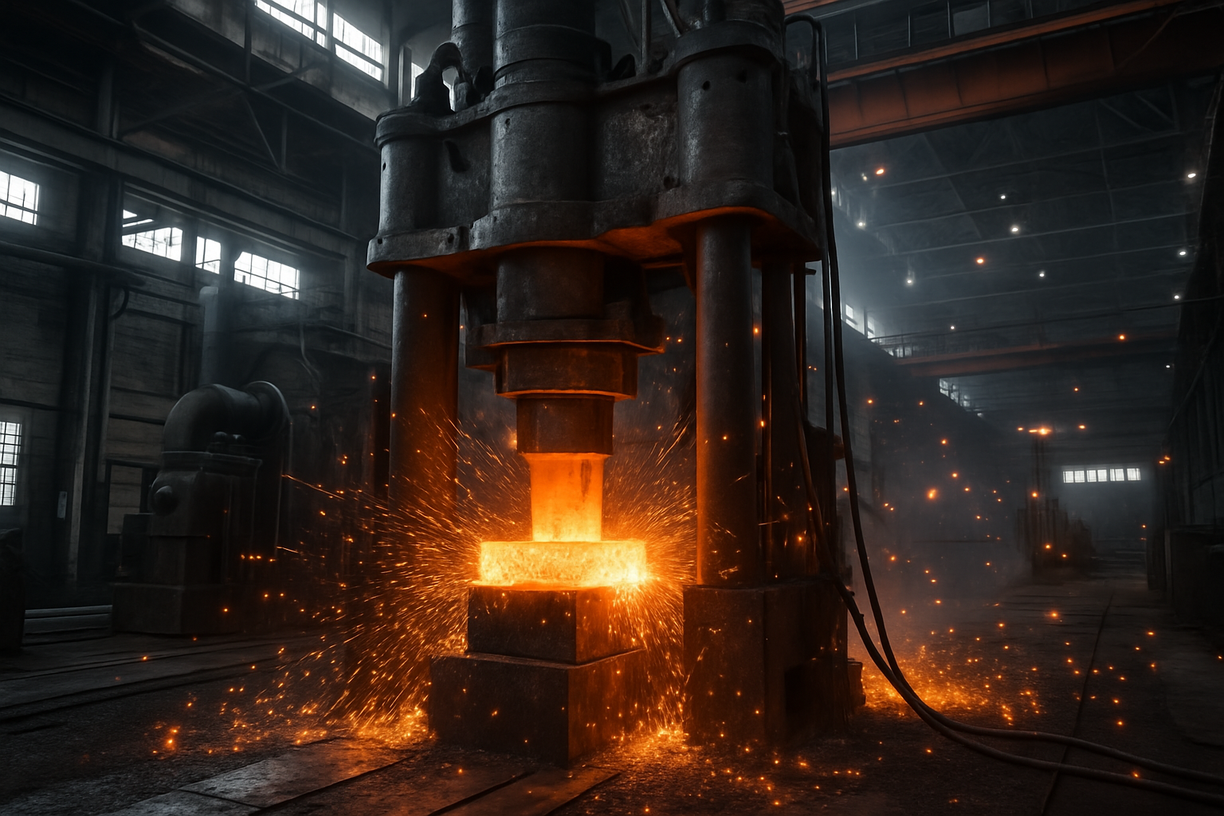
In Summary
Selecting the ideal forged metal parts supplier is a strategic decision that impacts structural integrity, production timelines, and total cost of ownership. In this guide, we’ve explored essential aspects of custom metal forging—from material selection and forging processes to inspection and global logistics. Long-term success depends on working with a supplier who supports both your current needs and future innovations.
Key Takeaways for B2B Buyers
- Process Expertise is Critical: Choose suppliers with proven experience in open die, closed die, and precision forging to ensure performance and dimensional accuracy.
- Quality Assurance is Essential: Work with partners who offer complete inspection protocols, CMM validation, and ISO-certified systems to reduce rework and failure rates.
- Total Value Matters: Evaluate more than price—consider long tool life, engineering support, consistent output, and integration capabilities.
- Engineering Partnership: Look for suppliers who collaborate early in your design phase, support DFM, and understand application-critical tolerances.
- Global Supply with Local Support: Ideal partners manage global logistics with local responsiveness, helping you avoid costly delays or customs issues.


Why PRIME Stands Out
PRIME brings over 30 years of expertise to the forging industry, delivering mission-critical components across sectors like aerospace, oil & gas, rail, and heavy equipment. Our advanced forging technology, precision machining, and strict quality control enable us to deliver high-integrity parts every time.
We don’t just manufacture—we optimize your design for forgeability, cost, and performance. From raw material testing and mold development to post-forging treatments and international logistics, PRIME is your single-source solution.
Global Capability, Responsive Support
With robust forging and machining infrastructure, PRIME serves clients in North America, Europe, the Middle East, and Asia-Pacific. Our global logistics network ensures smooth, cost-effective deliveries that meet your timeline and compliance requirements.
Discover how a dedicated forged parts partner can streamline your projects and enhance product reliability from concept to delivery.

Ready to Begin?
Whether you're sourcing forged components for critical infrastructure or high-precision machinery, PRIME is ready to support you. Submit your drawings and project details for a detailed feasibility review and quote within 24 hours.
Let’s forge success—together.
Get a Quote NowJust a Few of the Partners Who Trust Our Quality
*Logos are property of their respective owners.
What Our Customers Say
Real feedback from global buyers who trust us to deliver high-quality, customized industrial components.

Harry M., New York
Purchasing Manager – Metal Components
We’ve sourced CNC machined parts from Prime for over two years. The precision is consistently excellent, tolerances are spot on, and their team is responsive and professional. Fast lead times and secure packaging make them a reliable long-term partner.

Robert J., California
Strategic Sourcing Specialist – Industrial Hardware
The forged components we received from Prime were top quality — strong material integrity, accurate dimensions, and zero defects. Their team understood our specs clearly and delivered right on schedule. Great supplier for high-stress applications.

Emily T., Texas
Supply Chain Buyer – Custom Metal Parts
We ordered a batch of custom metal welded assemblies from Prime, and the quality was outstanding. The welds were clean, uniform, and met all our strength requirements. Communication was smooth, and delivery was faster than expected.

Hannah K., Ontario
Senior Buyer – Automotive
Prime supplies us with custom metal casting parts that meet strict automotive standards. Their ISO-certified quality, fast prototyping, and on-time delivery make them a trusted partner in our supply chain.

Luis R., Barcelona
Procurement Lead – Electronics
Prime has been a reliable partner for our custom plastic parts in consumer electronics. The injection-molded components are precise, durable, and always delivered on time, helping us stay competitive in the market.

Nadia P., Dubai
Category Manager – Industrial Projects
Prime delivers high-quality custom metal forgings for our industrial machinery. The parts are strong, reliable, and meet our exact specifications. With consistent quality and on-time delivery, Prime has become a trusted partner in our long-term projects.

Jon S., Munich
Operations Buyer – Machinery
Prime’s custom metal fasteners have proven to be durable and precise, perfectly fitting our heavy-duty machinery. Their consistent quality and reliable delivery help us maintain smooth production with fewer interruptions. Prime is a supplier we can count on for critical components.

Aisha M., Sydney
Sourcing Manager – Energy
From quoting to final inspection, Prime stayed on schedule with transparent updates. Their QC reports, salt spray results, and traceability made onboarding very smooth.
Get Your Custom Solution & Quote
REPLY WITHIN 24 HOURS
Start a Conversation with Our Experts
When you contact us, you get more than just a price. You get a dedicated partner.
- ✔ 30+ Years of Manufacturing Excellence, Direct from Our Factory
- ✔ Custom-Engineered Solutions for Your Needs
- ✔ Global Shipping & Logistics Support
- ✔ A Transparent, No-Obligation Quote
- ✔ 100% Confidentiality Guaranteed
Your email information will be kept strictly confidential and our business staff will ensure that your private information is absolutely safe!







